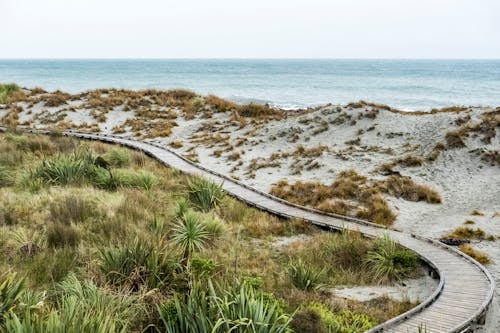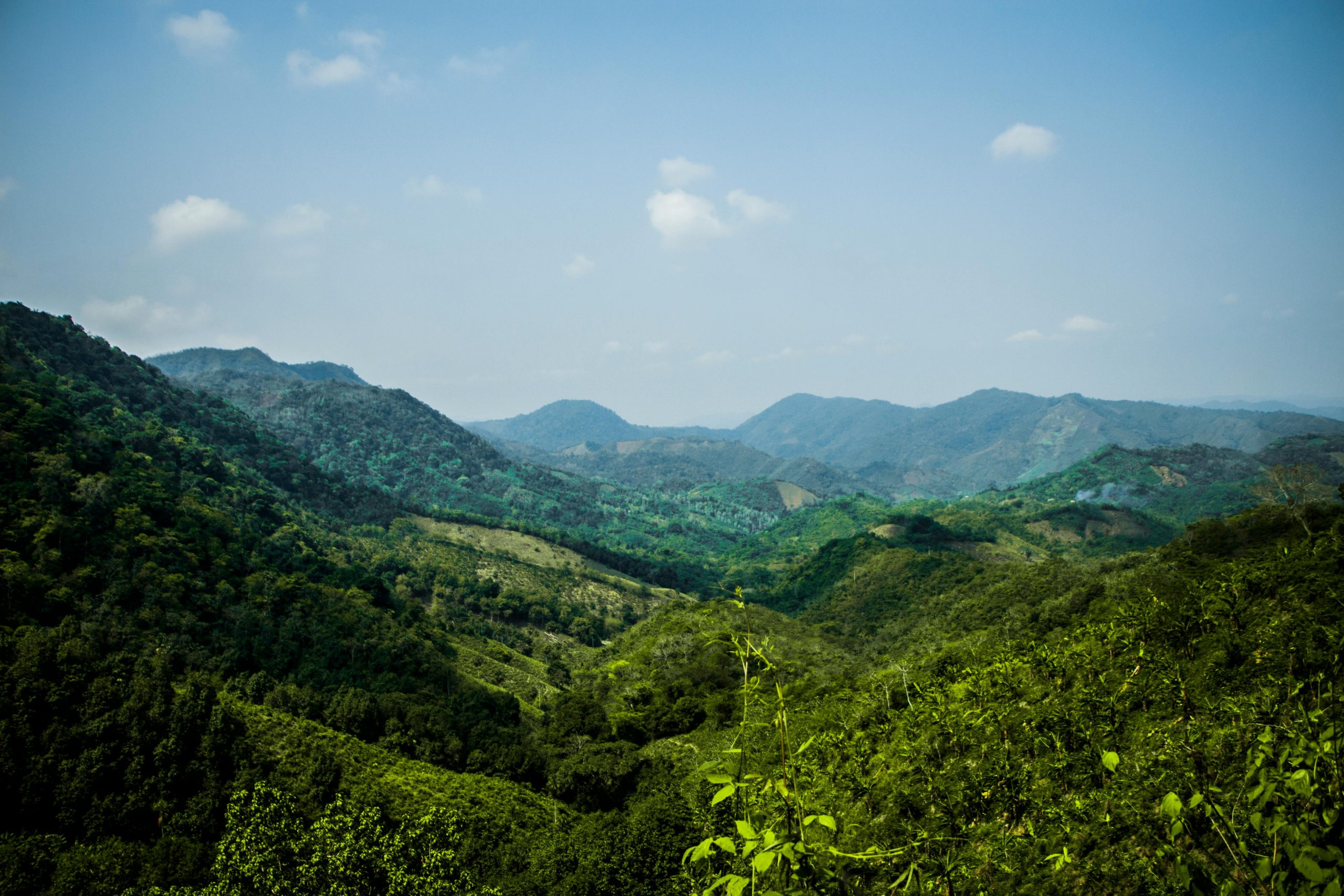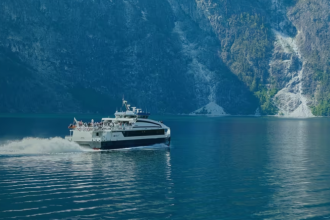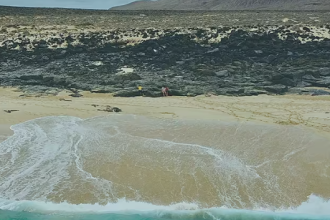As awareness of climate change and environmental issues continues to grow, more and more travelers are seeking eco-friendly alternatives to traditional tourism. Sustainable travel focuses on minimizing the impact on the environment while supporting local communities and preserving natural resources. If you’re an adventurer who wants to enjoy nature while keeping your ecological footprint as small as possible, there are plenty of places around the world that are making strides in sustainable tourism. From carbon-neutral lodgings to eco-conscious activities, here are some of the best eco-friendly travel spots for those who care about sustainability.
1. Costa Rica: A Model of Conservation and Sustainability

Costa Rica is a pioneer in eco-tourism, with a strong focus on environmental conservation and biodiversity. The country boasts a range of eco-friendly initiatives, from its vast network of national parks to its commitment to becoming carbon neutral by 2050. About a quarter of Costa Rica’s land is protected in the form of national parks and reserves, making it an ideal destination for nature lovers.
Travelers can explore the lush rainforests of Tortuguero National Park, go birdwatching in Monteverde Cloud Forest Reserve, or visit the Arenal Volcano, all while supporting conservation efforts. Many lodges and accommodations in Costa Rica are certified by the Costa Rican Tourism Institute (ICT) for their sustainable practices, offering everything from solar-powered energy to organic farming.
Costa Rica is also home to numerous sustainable adventure activities, such as hiking, kayaking, and wildlife watching, ensuring that every experience is as eco-friendly as it is thrilling.
2. Iceland: Harnessing Natural Resources Responsibly
Iceland is a country known for its striking landscapes—think glaciers, volcanoes, hot springs, and waterfalls. But what sets Iceland apart is its commitment to sustainable tourism practices. The country generates almost 100% of its electricity from renewable sources, primarily geothermal and hydropower, and is a global leader in geothermal energy.
Iceland’s eco-friendly hotels, restaurants, and tour operators are dedicated to reducing waste and using local, sustainable resources. The government has also implemented strict regulations to preserve its delicate natural landscapes. Visitors can hike along the Golden Circle, soak in the Blue Lagoon (which uses geothermal energy), or marvel at the Northern Lights, all while minimizing their environmental impact.
With an emphasis on conservation and sustainable travel, Iceland offers an adventure-filled yet environmentally conscious travel experience.
3. Bhutan: A Carbon Negative Nation
Bhutan is a small Himalayan kingdom that has long been a champion of sustainability and conservation. The country is unique in that it measures success by the Gross National Happiness (GNH) index rather than GDP, focusing on the well-being of its people and the planet. Bhutan is the only country in the world that is officially carbon negative, absorbing more carbon dioxide than it emits.
The government strictly regulates tourism through a “high-value, low-impact” policy, ensuring that only a limited number of tourists are allowed to visit each year. Visitors can hike to the iconic Tiger’s Nest Monastery, explore the peaceful landscapes of the Phobjikha Valley, or enjoy cultural experiences that emphasize Bhutan’s traditions and sustainable values.

In Bhutan, eco-conscious travelers can rest easy knowing that their visit helps support the country’s commitment to environmental protection and cultural preservation.
4. New Zealand: A Leader in Conservation Efforts
New Zealand is known for its rugged landscapes, pristine lakes, and unique wildlife. The country has made significant efforts to protect its natural environment, and eco-tourism is at the heart of New Zealand’s travel industry. The government has set ambitious sustainability goals, including halving carbon emissions by 2030.
Travelers can experience New Zealand’s eco-friendly attractions, such as the Fiordland National Park, which offers some of the most breathtaking hikes in the world. Many accommodations and tour operators are committed to sustainability, offering eco-friendly lodging, renewable energy sources, and carbon offset programs. Additionally, New Zealand has several initiatives to protect its native wildlife, such as the Kea Conservation Trust, which helps preserve the endangered Kea parrot.
Whether you’re hiking through national parks, exploring Maori heritage, or participating in wildlife conservation efforts, New Zealand offers an eco-conscious and unforgettable adventure.
5. Norway: Sustainable Travel in the Land of Fjords
Norway, with its towering fjords, snowy peaks, and charming coastal towns, is a favorite destination for nature enthusiasts. The country is known for its commitment to sustainability, and the tourism industry is no exception. Norway has set ambitious goals to become carbon neutral by 2050, and the country is investing heavily in renewable energy and eco-friendly transportation.
Travelers can explore the iconic fjords by taking sustainable cruises that minimize emissions, or opt for a hike in the Lofoten Islands, where sustainable practices are embedded in local tourism. Norway’s hotels, transportation, and attractions also focus on sustainable practices, from waste reduction programs to energy-efficient designs.
For those seeking an adventure in the heart of nature, Norway offers a range of eco-friendly experiences that allow visitors to enjoy the breathtaking landscape without leaving a heavy environmental footprint.
6. Kenya: Eco-Tourism and Wildlife Conservation
Kenya is renowned for its diverse wildlife and stunning landscapes, including the Maasai Mara, Amboseli National Park, and Tsavo National Park. Eco-tourism has become a key part of Kenya’s efforts to protect its wildlife, and many tour operators work closely with local communities to promote sustainable practices.
Kenya’s eco-friendly safaris allow travelers to observe wildlife in their natural habitat while supporting conservation initiatives. Visitors can stay in eco-lodges that utilize solar power, conserve water, and prioritize wildlife preservation. Many lodges and tour companies donate a portion of their profits to local conservation efforts, ensuring that wildlife thrives for future generations.
For adventurers seeking an authentic and sustainable safari experience, Kenya offers a unique opportunity to explore some of the world’s most iconic wildlife habitats in an eco-conscious way.
7. Switzerland: Combining Luxury and Sustainability

Switzerland is a country that masterfully blends luxury with sustainability. The Swiss are committed to protecting their natural beauty, and the tourism industry follows suit. Switzerland has implemented stringent environmental regulations, ensuring that its pristine landscapes—such as the Swiss Alps, Lake Geneva, and the Matterhorn—remain protected for future generations.
Visitors can enjoy eco-friendly activities such as hiking, skiing, and cycling while staying in environmentally conscious hotels and resorts. Many accommodations in Switzerland are certified by organizations like Green Globe and are committed to reducing waste, conserving energy, and sourcing locally.
Switzerland’s eco-tourism infrastructure is top-notch, with well-maintained trails, sustainable transport options, and responsible wildlife practices, making it an ideal choice for luxury travelers who want to minimize their environmental impact.
8. Australia: Sustainable Travel Down Under
Australia is a land of diverse ecosystems, from the Great Barrier Reef to the Outback. While the country faces challenges due to its vast size and popularity as a tourist destination, Australia is making strides in sustainable tourism. Many of the country’s most iconic destinations, including national parks, beaches, and indigenous heritage sites, are committed to eco-friendly practices.
In places like Tasmania, travelers can visit eco-lodges that use renewable energy and focus on minimizing waste. The Great Barrier Reef, one of the world’s most fragile ecosystems, is protected by sustainable tourism initiatives that limit the number of visitors and reduce environmental damage.
Australia offers a range of activities for the sustainable traveler, from wildlife encounters to hiking in protected areas, all while supporting eco-friendly tourism practices.
9. Canada: A Green Giant in the North
Canada’s vast wilderness—home to towering forests, frozen tundra, and rugged coastlines—is one of its greatest assets. The country’s commitment to sustainability is reflected in its national parks, eco-lodges, and wildlife protection programs. Canada is a leader in promoting green travel, with eco-certification programs that encourage businesses to adopt environmentally responsible practices.
Visitors can experience the natural beauty of the Canadian Rockies, go kayaking in national parks, or explore the wildlife-rich landscapes of British Columbia. Many eco-friendly accommodations in Canada are powered by renewable energy and focus on waste reduction, giving travelers the opportunity to enjoy the environment without contributing to its degradation.
Canada’s rich wildlife, protected habitats, and commitment to sustainability make it an ideal destination for eco-conscious adventurers.
10. Madagascar: Preserving Unique Ecosystems
Madagascar is a treasure trove of biodiversity, home to species that can’t be found anywhere else on Earth. The country has made significant efforts to promote eco-tourism, with initiatives focused on preserving its unique ecosystems and protecting endangered species. Madagascar’s rainforests, coral reefs, and dry spiny forests are all critical habitats that are being preserved through responsible tourism.

Visitors can explore the island’s national parks, go on wildlife safaris, or dive into the crystal-clear waters of the Indian Ocean, knowing that their visit supports conservation efforts. Many of Madagascar’s eco-lodges work closely with local communities to ensure that the benefits of tourism are shared and that sustainable practices are in place.
For nature lovers seeking a one-of-a-kind experience, Madagascar offers the chance to witness some of the planet’s rarest species while contributing to their protection.
Conclusion
Sustainable travel is more than just a trend; it’s a responsibility. As travelers, we have the power to make choices that protect the environments we visit and support the communities that call these places home. From the tropical rainforests of Costa Rica to the remote beauty of Madagascar, there are countless eco-friendly destinations around the world where you can enjoy an adventure without compromising the planet. By choosing sustainable travel, you’re not only creating memorable experiences for yourself but also helping ensure that these natural wonders remain for future generations to enjoy.





